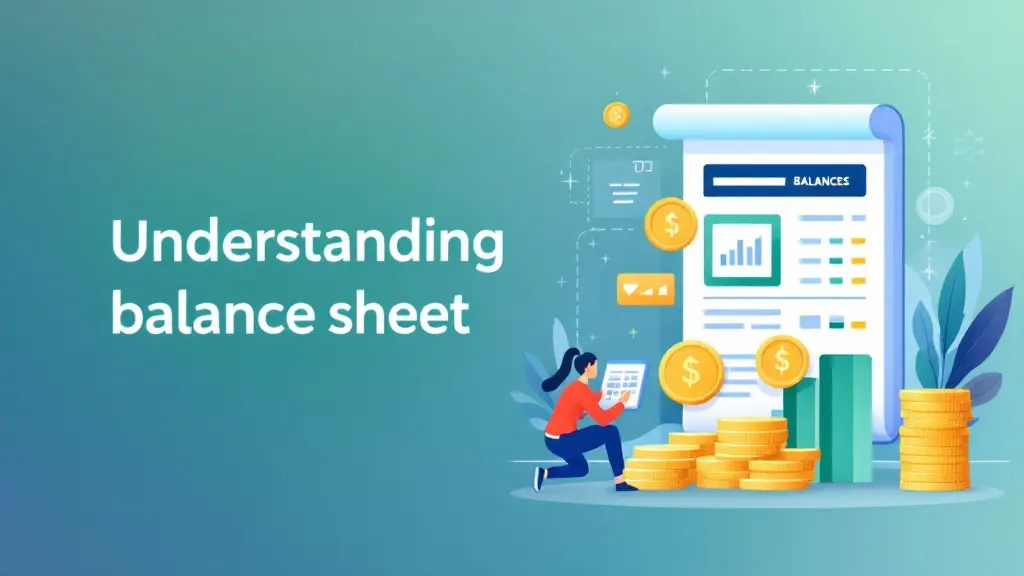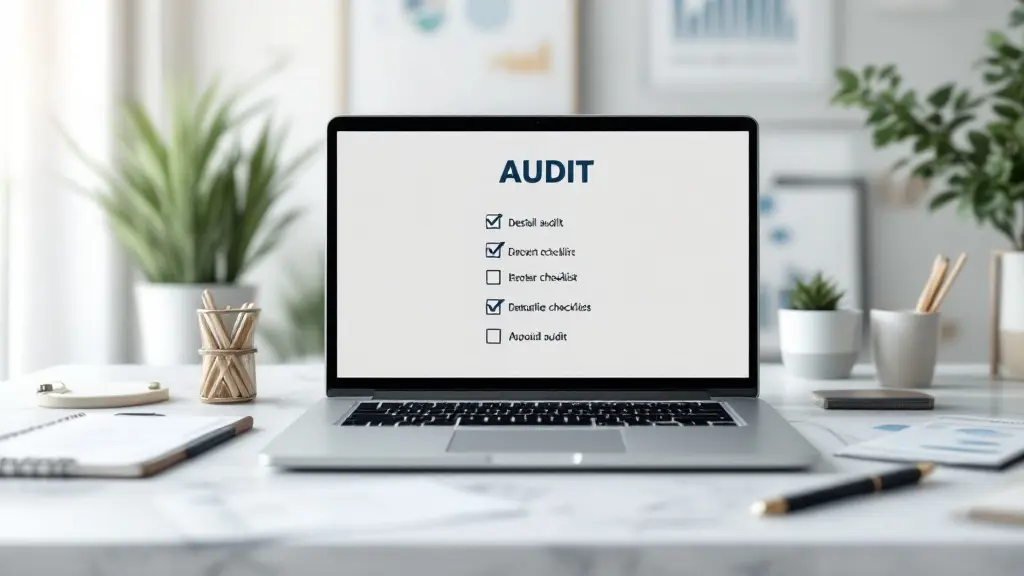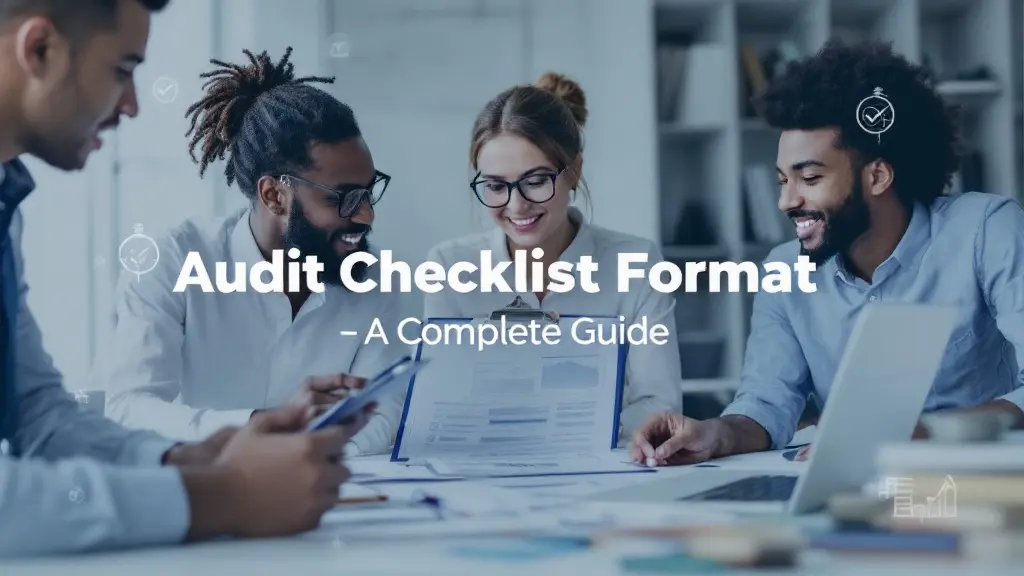Reducing Accounting Costs for Small Businesses
Table of Contents
Most Read
[fusion_dropcap class="fusion-content-tb-dropcap"]R[/fusion_dropcap]educing accounting costs for small businesses is more critical than ever in today's competitive landscape, where every dollar counts. Did you know that many small businesses spend nearly 20% of their gross income on accounting and financial management? This staggering figure highlights the pressing need for effective strategies to streamline financial processes and enhance profitability. As a small business owner, you may feel overwhelmed by the complexities of accounting, taxes, and compliance, but fear not—this blog post will guide you through practical and actionable steps to minimize your accounting expenses. From leveraging technology to educating your team on best practices, we’ll explore various methods that not only reduce costs but also enable you to focus more on growing your core business. Dive in and discover how to make financial efficiency a reality for your business.
Understanding the Importance of Reducing Accounting Costs for Small Businesses
Reducing accounting costs for small businesses is more than just an expense-cutting strategy; it’s a vital part of ensuring the sustainability and growth of your business. High accounting costs can drain your resources and hinder your ability to invest in other crucial areas. By understanding and managing these costs effectively, you can enhance your overall business performance.
The Impact of Accounting Costs on Business Operations
For small businesses, accounting costs directly affect cash flow and profitability. Here are some impacts of high accounting costs:
-
Reduced Funds for Growth: Excessive accounting expenses may take away funds that could be invested back into the business.
-
Increased Stress Levels: Managing high costs can lead to anxiety for business owners, often resulting in poor decision-making.
-
Limited Financial Insights: If accounting costs take a significant chunk of your revenue, you may not allocate enough resources to get detailed financial analyses that can inform your strategic decisions.
Why Cost Efficiency Matters
Cost efficiency is paramount for small businesses looking to thrive in competitive markets. By focusing on reducing accounting costs, entrepreneurs can:
-
Improve profitability margins
-
Free up capital for development initiatives
-
Enhance operational agility
-
Strengthen financial reporting and compliance
Common Accounting Expenses Small Businesses Face
Understanding the various accounting expenses you incur will help in pinpointing areas for potential savings. Common accounting costs include:
-
Staff Salaries: Payments to in-house accountants or bookkeepers.
-
Software Subscriptions: Monthly or annual fees for accounting software tools.
-
Outsourcing Fees: Costs associated with hiring external accounting firms.
-
Training Costs: Expenses related to educating your team on accounting best practices.
As you explore ways for reducing accounting costs for small businesses, consider these common areas as potential targets for budget adjustments.
Strategies for Reducing Accounting Costs for Small Businesses
There are several proven strategies that can help small businesses significantly reduce their accounting costs:
-
Streamlining Accounting Processes
-
Review your current accounting practices to identify inefficiencies.
-
Standardize procedures to simplify operations.
-
-
Implementing Technology Solutions
-
Utilize accounting software to automate invoicing, expense tracking, and reporting.
-
Tools like QuickBooks or Xero can streamline tasks efficiently.
-
-
Outsourcing vs. In-house Accounting
-
Evaluate the cost-effectiveness of hiring an external firm versus maintaining an internal team.
-
Consider accessing professional services during busy tax seasons to manage workload without incurring fixed costs year-round.
-
By adopting these strategies, you can make significant strides in reducing accounting costs while still maintaining robust financial management.
For more insights into effective accounting solutions for small businesses, visit Intuit QuickBooks.
Leveraging Accounting Software for Cost Savings
One of the most effective strategies for reducing accounting costs for small businesses is the adoption of accounting software. By streamlining financial processes and improving accuracy, these tools can significantly lower overhead costs associated with traditional accounting methods.
Benefits of Cloud-Based Accounting Solutions
Cloud-based accounting software offers numerous advantages that can contribute to cost savings for small businesses. Here are some key benefits:
-
Accessibility: Cloud solutions allow you to access financial data from anywhere, making it easier to manage accounts on the go.
-
Automatic Updates: You no longer have to worry about outdated software or missed updates, as cloud solutions are constantly maintained.
-
Scalability: As your business grows, cloud accounting solutions can scale with you, ensuring you don't pay for more than you need.
Features to Look for in Accounting Software
When considering software for reducing accounting costs for small businesses, it's crucial to choose a solution that fits your unique needs. Key features to look for include:
-
Automated Invoicing and Billing: Saves time and reduces errors in managing accounts receivable.
-
Expense Tracking: Helps you monitor spending and identify areas where you can cut costs.
-
Financial Reporting: Analytical tools that provide insights into your financial health, facilitating better decision-making.
By leveraging the right accounting software, small businesses can streamline their financial processes, reduce spend, and ultimately enhance their profitability.
For more information on various accounting software solutions, visit Sage.
Tax Efficiency: Maximizing Deductions and Reducing Liability
For small businesses, tax expenses represent a significant portion of overall accounting costs. Understanding how to maximize deductions and reduce tax liability is a crucial element in reducing accounting costs for small businesses. By being proactive during the tax planning process, you can retain more of your earnings and improve your bottom line.
Understanding Tax Obligations
Small businesses need to stay informed about various tax obligations they face, including:
-
Income Taxes: Taxes levied on profits earned during the financial year.
-
Sales Taxes: Taxes collected on the sale of goods and services.
-
Payroll Taxes: Taxes related to employee salaries and wages.
Familiarity with these obligations ensures you don’t overlook potential deductions that could decrease your taxable income.
How to Identify Deductions Available for Small Businesses
Maximizing tax deductions can lead to significant savings each year. Consider the following common deductions available:
-
Home Office Deduction: If you run your business from home, you may be eligible for deductions related to your home office.
-
Business Meals: Expenses for meals with clients or for business purposes can often be partially deducted.
-
Education and Training Costs: Courses and training programs to enhance your skills related to your business may qualify as deductions.
-
Supplies and Equipment: Costs for necessary materials or equipment used in your business can be deducted from taxable income.
By taking full advantage of these deductions, small businesses can effectively lower their taxable income, contributing to the overall strategy of reducing accounting costs.
For further guidance on business tax strategies, visit H&R Block.
Practical Tips for Budgeting Accounting Expenses
Effective budgeting is vital for reducing accounting costs for small businesses. By creating a structured budget, you can ensure that you allocate resources efficiently, monitoring expenses and making adjustments as necessary. Here are some practical tips for budgeting your accounting expenses effectively.
Creating an Accounting Budget
-
Analyze Historical Data: Review past expenditures to identify trends in your accounting costs. This will help you set realistic budget limits.
-
Categorize Expenses: Organize your accounting costs into categories, such as software subscriptions, staff salaries, and consulting fees. This breakdown will make it easier to spot areas for potential savings.
-
Set Clear Goals: Establish specific, measurable goals for your budgeting process. For example, target a 10% reduction in accounting costs over the next year.
Monitoring and Reviewing Accounting Expenses Regularly
Budgeting is not a one-time event. To ensure ongoing cost reductions, implement a system for monitoring and reviewing your accounting expenses:
-
Monthly Check-Ins: Conduct monthly reviews of your expenses against your budget. This will help identify discrepancies early and allow for necessary adjustments.
-
Utilize Accounting Software: Leverage technology to track expenses in real-time, making it easier to stay within your budget.
-
Collaborate with Your Team: Encourage open communication with your team about budgeting. Gathering input from employees can lead to new ideas for reducing costs.
By following these practical tips, small businesses can create a more effective budgeting process, ultimately leading to significant reductions in accounting costs.
For additional resources on budgeting, check out Mint.
Educating Your Team on Accounting Best Practices
A well-informed team is essential for reducing accounting costs for small businesses. By equipping your staff with knowledge on best practices, you can minimize mistakes, ensure compliance, and streamline financial processes. Here’s how to educate your team effectively.
Training Staff on Financial Management
-
Conduct Workshops and Training Sessions: Host regular workshops focused on important accounting topics such as budgeting, expense tracking, and tax compliance. These sessions can help your team understand best practices and their direct impact on the bottom line.
-
Utilize Online Resources: Leverage online courses or webinars from reputable sources to provide team members with flexible learning opportunities. Consider platforms like Coursera or LinkedIn Learning that offer courses specifically tailored to finance and accounting.
-
Implement Mentorship Programs: Pair less experienced team members with seasoned professionals in your organization. This mentorship can provide practical insights that theoretical training may not convey.
Encouraging Mindful Financial Practices
In addition to formal training, fostering a culture of financial awareness within your team can further help in reducing accounting costs:
-
Encourage Open Dialogue: Create an environment where employees feel comfortable discussing financial matters. This can lead to innovative ideas for cost savings.
-
Promote Accountability: Encourage team members to take ownership of their financial responsibilities and understand how their actions affect the company’s overall accounting expenses.
-
Provide Resources: Share helpful tools, guides, and best practice documents that your team can reference when handling financial tasks.
By prioritizing education and promoting mindful financial practices, small businesses can significantly reduce their accounting costs while fostering a financially savvy workforce.
For further insights on financial training, visit Harvard Business Review.
The Role of Professional Accounting Services
For many small businesses, understanding when to seek professional accounting services is crucial for reducing accounting costs. While some businesses may attempt to handle all financial tasks in-house, there are important circumstances where engaging professional help can lead to long-term savings and improved efficiency.
When to Consider Hiring an Accountant
-
Complex Financial Situations: If your business is experiencing growth or entering new markets, the financial landscape may become more complicated. An accountant can provide expertise to navigate these complexities, ensuring compliance and efficient management.
-
Preparing for Tax Season: As tax deadlines approach, hiring an accountant can alleviate stress and ensure accurate filings, which may help you take advantage of deductions and reduce tax liabilities.
-
Budgeting and Forecasting: Professional accountants can assist in creating realistic budgets and forecasts, which can lead to better financial planning. This structured approach helps businesses allocate resources effectively, reducing overspending.
Cost vs. Value: Understanding Return on Investment (ROI)
While hiring an accountant may seem like an extra expense, it’s vital to understand the value they bring:
-
Accuracy and Compliance: Professional accountants reduce the risk of errors and ensure compliance with regulations, which can save your business from costly penalties down the line.
-
Time Savings: Outsourcing accounting tasks frees up time that you can invest in growing your business.
-
Financial Insights: Expert accountants analyze financial data to provide valuable insights, helping you make informed decisions that can drive growth.
By recognizing the pivotal role that professional accounting services can play in your financial strategy, you can effectively contribute to reducing accounting costs for small businesses.
For more information on choosing the right accounting service, visit Deloitte.
Conclusion: Taking Action to Reduce Accounting Costs
In today's competitive business landscape, reducing accounting costs for small businesses is not just a financial necessity; it's a strategic imperative. By implementing the strategies discussed throughout this blog, you can achieve cost efficiency and focus on what truly matters—growing your business.
Recap of Key Strategies
Here’s a summary of actionable steps you can take to reduce accounting costs:
-
Leverage Technology: Invest in accounting software to automate processes, reduce errors, and enhance accessibility.
-
Maximize Deductions: Stay informed of available tax deductions and engage in proactive planning to minimize tax liabilities.
-
Effective Budgeting: Create a comprehensive budget while regularly monitoring expenses to keep your accounting costs in check.
-
Team Education: Equip your team with financial knowledge to encourage mindful financial practices and reduce mistakes.
-
Professional Help: Know when to enlist professional accounting services for complex financial situations or tax preparation.
Encouraging Proactive Financial Management
Remember, taking action is key to successfully reducing accounting costs for small businesses. Regularly assess your accounting practices, stay updated on industry trends, and continually seek out ways to enhance efficiency. Proactive financial management can lead to significant savings, allowing you to allocate resources to growth opportunities.
For more insights on optimizing your financial management, consider exploring PwC.
Continuous Improvement in Accounting Practices
Reducing accounting costs for small businesses is an ongoing process that requires vigilance and a commitment to continuous improvement. As your business evolves, so too should your accounting practices. Here are some effective methodologies to ensure that you remain on the right track.
Implementing Regular Financial Audits
-
Schedule Routine Audits: Conduct regular financial audits to assess your current accounting processes, identify inefficiencies, and ensure compliance with regulations. This proactive approach can uncover areas for cost reduction.
-
Internal vs. External Audits: Decide whether to perform audits internally or hire external professionals. External audits can provide an unbiased perspective and may identify issues that were previously overlooked.
Embracing Lean Accounting Principles
Adopting lean accounting principles can help streamline your financial processes, allowing for significant reductions in costs:
-
Value Stream Mapping: Analyze specific accounting tasks to determine which add value and which do not. Streamline non-value-adding activities.
-
Eliminate Waste: Identify and eliminate waste within your accounting processes. This could include redundant tasks, excessive paperwork, or overly complex procedures.
Staying Informed on Industry Trends
Keeping up with evolving trends in accounting can also contribute to your cost-saving strategies:
-
Follow Regulatory Changes: Stay informed about changes in tax laws and accounting standards that could impact your financial practices.
-
Leverage Industry Insights: Subscribe to reputable financial publications or organizations for insights and best practices that can inform your strategy.
By focusing on continuous improvement in your accounting practices, you position your small business for long-term success while effectively reducing accounting costs.
For further reading about best practices in accounting, visit KPMG.
Utilizing Data Analytics for Cost Management
In the quest for reducing accounting costs for small businesses, data analytics can serve as a powerful tool. By harnessing financial data effectively, you can make informed decisions that promote cost efficiency and streamline operations.
Understanding the Role of Data Analytics
Data analytics involves examining financial data to identify trends, patterns, and insights that can make your accounting processes more efficient. It can help small businesses in several ways:
-
Identifying Cost Drivers: Analyze your financial data to determine which activities or processes are consuming the most resources.
-
Forecasting Trends: Utilize historical data to predict future costs, helping you allocate budgets more effectively.
-
Enhancing Decision-Making: Data-driven insights allow for better-informed decisions regarding investments, spending, and resource allocation.
Implementing Data Analytics Strategies
-
Integrate with Accounting Software: Many modern accounting software solutions come equipped with built-in analytics tools. Leverage these features to gain insights into your financial health.
-
Dashboards and Reporting: Use dashboards to visualize key performance indicators (KPIs) and create detailed reports that highlight financial performance over time.
-
Regular Review of Analytics: Schedule regular reviews of your data analytics to keep a pulse on your financial situation, helping you identify opportunities for reducing unnecessary costs.
By utilizing data analytics, small businesses can gain a deeper understanding of their financial landscape, facilitating smarter financial decisions and greater efficiency in reducing accounting costs.
For more insights on leveraging data for financial improvements, visit McKinsey & Company.
What are some effective ways to reduce accounting costs for small businesses?
Effective ways to reduce accounting costs include leveraging accounting software for automation, outsourcing tasks to professional accounting services, implementing thorough budgeting processes, and regularly reviewing financial practices to identify inefficiencies. Additionally, educating your team on financial management can lead to more mindful spending.
How can technology help in reducing accounting costs?
Technology can significantly reduce accounting costs by automating tasks like invoicing, expense tracking, and reporting. Cloud-based accounting software allows for real-time access to financial information, which reduces errors and speeds up the workflow. This efficiency ultimately saves money in labor costs and prevents costly mistakes.
When should small businesses hire professional accountants?
Small businesses should consider hiring professional accountants when they experience complex financial situations, prepare for tax season, or seek assistance with budgeting and forecasting. Professional accountants can provide expertise that ensures accuracy and compliance, potentially saving the business money in penalties and improving overall financial health.
Are there specific tax deductions small businesses should be aware of to reduce costs?
Yes, small businesses can benefit from several tax deductions, including the home office deduction, business meals, educational expenses, and costs for supplies and equipment. Understanding which deductions apply can help businesses lower their taxable income, thereby reducing overall accounting costs.
How can continuous improvement in accounting practices affect cost reduction?
Continuous improvement in accounting practices involves regularly reviewing and revising financial processes to enhance efficiency. This could encompass implementing lean accounting principles, utilizing data analytics, or conducting routine audits. By constantly evaluating these practices, businesses can identify areas of waste and improve cost management strategies.









